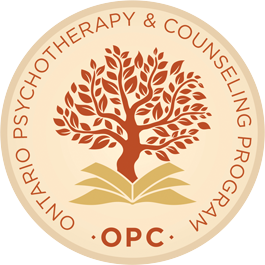The Controlled Act of Psychotherapy
December 21st, 2017 was an historic day for psychotherapy. This was the day that the Controlled Act of Psychotherapy was proclaimed in Canada. So, what is a controlled act, and why is this so significant for psychotherapy?
A controlled act is a part of the Regulated Health Professions Act, 1991 (RHPA). It prohibits individuals from performing certain acts in the course of providing health care unless that person has been authorized to do so by a health profession act. A controlled act is a specific component of health care that is considered to be the highest risk to the client and thus needs to be regulated and controlled to protect the public. You can read the actual RHPA here for a more detailed description of these acts.
The recent addition of a 14th controlled act of psychotherapy is, of course, what is of most interest to us as psychotherapists. In defining the 14th act, the RHPA restricts the controlled act of psychotherapy to only certain professionals, including: nurses, psychologists, psychiatrists, social workers, and registered psychotherapists. The controlled act of psychotherapy is defined in the RHPA as:
“Treating, by means of psychotherapy technique, delivered through a therapeutic relationship, an individual’s serious disorder of thought, cognition, mood, emotional regulation, perception or memory that may seriously impair the individual’s judgment, insight, behaviour, communication or social functioning.”
What exactly is the component of psychotherapy that became a controlled act? It does not include all of psychotherapy practice and is not defined by any one specific technique. If it is not determined by a specific technique and it does not generally refer to all of psychotherapy practice, then how does a therapist determine when they are performing the controlled act of psychotherapy?
To help elucidate this, there are five components in the controlled act and all must be met in order to qualify as performing the controlled act of psychotherapy. That means it is possible to be providing psychotherapy, but not the controlled act of psychotherapy. For example, if only four of the five criteria below are met, you may still be providing psychotherapy, but you are not performing the controlled act of psychotherapy.
The Five Components Necessary to be Performing the Controlled Act of Psychotherapy:
- You are treating a client.
- You are applying a psychotherapy technique.
- You have a therapeutic relationship with the client.
- The client has a serious disorder of thought, cognition, mood, emotional regulation, perception, or memory.
- This disorder may seriously impair the client’s judgment, insight, behaviour, communication, or social functioning.
The proclamation of this act is a great success for the health care of all Ontarian’s and is a major step forward in the safer and more effective treatment of clients through psychotherapy. We are always seeking greater understanding of how psychotherapy works and how to protect our clients from harm. With the Controlled Act of Psychotherapy, we move a little closer to making sure that clients we treat receive the care they need in a safe and effective manner from a professional who has been authorized to do so by their health profession act.

